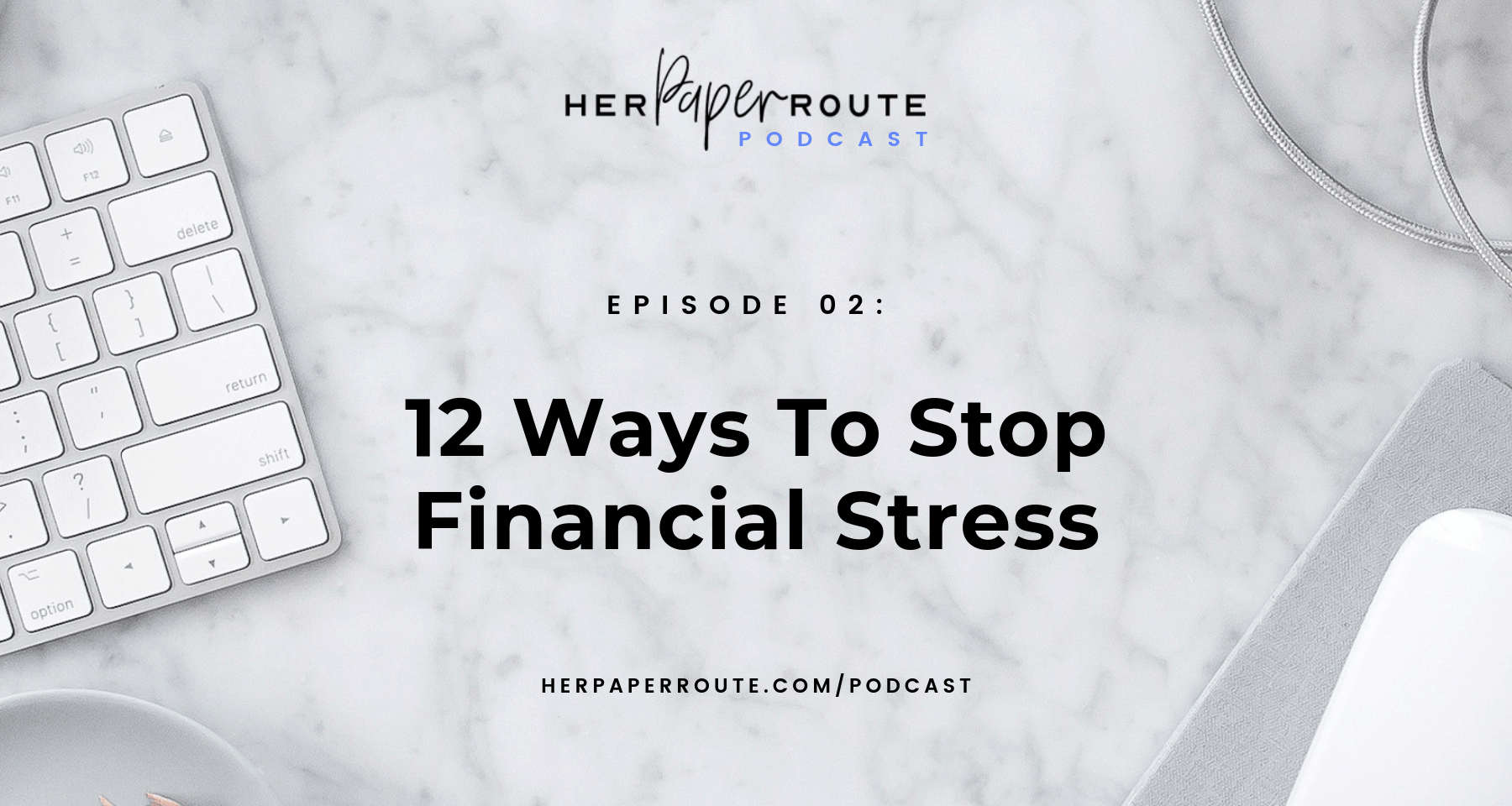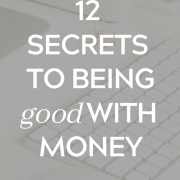12 Tactics To Stop Financial Stress
12 Tactics To Stop Financial Stress – Alright, time for episode 2 of the HerPaperRoute Podcast.
Today I want to chat about something fairly taboo. And that’s the stress that comes with money problems.
As an affiliate partner of various brands and sponsored content, HerPaperRoute may earn commission on qualifying purchases. Disclaimer | Advertise With Us
Because honestly, we’ve all been there.
Of course, I don’t have the solution for all money woes.
But my goal is to offer some help for ways we can improve our relationship with money, to fight financial stressors realistically.
Taking small steps towards a stable long term good financial situation is what it’s all about. Here I share 12 secrets of the financially wise, you can use to beat financial stress. (And no, it’s not “just be rich!”)
==> More episodes
Shownotes – Bonuses & Resources
Creating a budget doesn’t have to be confusing! Get your free copy of my Budget Planner to help you get your finances in order.
In addition, you can access my free blogging course here to learn how to start and monetize a blog.
And when you sign up today, you’ll get a special 50% off deal to enroll in my full, premium blog monetization course Be Your Own Blog Boss!
Sponsor Bonus
Let’s learn something new today! Skillshare is an online learning community where you can take classes taught by industry experts.
Social media marketing, SEO, business, financial management, crafting, and creative business skills, it’s all just a click away.
HerPaperRoute Podcast listeners get 2 months free unlimited access to Skillshare when you sign up now!
Ep 02: 12 Ways To Stop Financial Stress
We have all dealt with some type of financial stress in one form or another. Most people could use a prayer for financial help at some point in life.
Maybe you didn’t have enough to get all your groceries for the week or forgot about an automatic payment that was coming out and put your account in the negative.
It sucks, I know. You think you have everything under control, you aren’t struggling financially, then boom! And unexpected expense occurs, and you are overwhelmed with money stress.
Ending financial stress and putting a stop to money problems for good is possible. It’s all about planning and preparation.
12 Tactics To End Financial Stress, Even If You’ve Tried Everything
Financial fitness is such an important part of life. The strength of your mindset and attitude about money can either bring on financial stress or keep it at bay, when things get hard.
Financially savvy women (and men) know the ins and outs of their financial situation and have learned how to handle any disruptions without getting completely thrown off track.
Whether you’re a single lady, a CEO mama, or just leaving the nest, these good financial habits will help you to keep your finances and life in order, no matter what challenges are thrown your way.
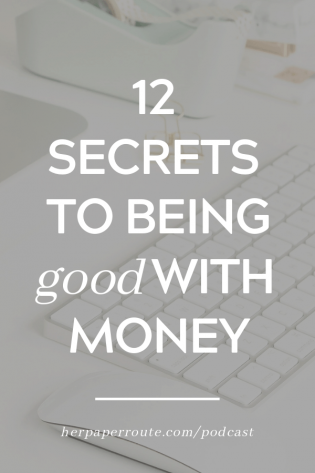
1. Don’t live above your means
I know this can be hard at times with all those tempting credit card offers. But honestly, don’t spend more than you really can afford.
Savvy financial women don’t depend on credit and can hold back from that ever so tempting instant gratification.
Understand that looking wealthy and actually being wealthy are two completely different things.
Just because you can buy a $300 Michael Kors watch-on a credit card doesn’t mean that you have any actual money.
Be motivated by the long-term financial freedom rather than looking the part now.
Just take a look at some of the most successful individuals, Bill Gates, Warren Buffet, and Mark Zuckerburg, they aren’t walking around in Gucci and Prada.
They are “average,” because they know that you don’t have to be dripping in designer couture to be financially savvy.
2. Get rid your most expensive debts first
Work smarter not harder.
If you do have debt that you need to climb out of, write down exactly how much everything is, the monthly minimums, and the APRs.
Which one is costing you the most? Work on those ones first or transfer any debt with high APRs to something with lower ones to try and save a little while you are working on paying it off.
This way of paying off the biggest debts first is called the snowball method.
The snowball method, in its simplest term, is that you start with your smallest debt and pay the minimum on the rest of your debts.
Once you have paid off the smallest debt, move on to the next one and use what you were paying on your smallest debt and allocate it to paying (plus the minimum) on your next smallest debt.
Related: Pay Off Your Debt Faster With the Debt Snowball Method
3. Don’t spend frivolously
Again with the instant gratification…Do you really need the newest model smartphone? Probably not.
Really know where your money is going and don’t let it just disappear out of your bank account.
Before I had a handle on this, I can’t tell you how many times I looked in my checking and discovered charges that I couldn’t remember making.
This is a terrible habit!
Avoid things that send you coupons for things that you wouldn’t normally buy. This will only tempt you to buy something that you probably don’t need.
If there is something that you really want, sit on it for a bit. Do you still really want it after a few weeks or months? Then use that time to save up for it.
4. Cut back where you can
This goes hand in hand with financial stress reducing tip #3.
You can easily save $25 a week by making your coffee at home rather than stopping at Starbucks 5 days a week.
Look for ways you can cut back unnecessary expenses. For example, I saved $19,000 per year when I stopped buying these 8 things.
There are lots of things that you can do to cut unnecessary expenses.
Do you have kids in sports and extracurricular activities? Look for hand-me-down items from other parents in those groups. Check out Craigslist or resale Facebook groups for items your kids need.
Here ‘s how one mom saved $1000 buying second hand:
“When my son started BMX racing, I wanted to buy him a brand new bike and gear, but that would have added up to around $1,000 or more! Instead, we purchased a used bike from the local BMX track for $100 and some other parents gave us (for free) some gear, and we purchased a perfectly good helmet of a friend for $10. Score! $110 vs. $1,000+, and he was just as happy.”
Take a look at other areas where you might be spending unnecessarily.
- Do you always buy brand name items at the grocery store?
- Are you paying for monthly services that you hardly ever use (like that gym membership?)
- Do you purchase things at the gas station when you go in to buy gas that you don’t need?
Related: How To Stop Living Paycheck To Paycheck Without Losing Your Sanity!
5. Have a savings and an emergency fund
You may be thinking to yourself, what’s the difference between savings and an emergency fund.
Generally speaking, you should have 6 months worth of expenses in your savings and an additional $X amount for an emergency.
An emergency could be if you need a new water heater, the fridge breaks, or some other annoying and unexpected expense.
Contribute to your savings and emergency funds regularly. Be prepared!
Your savings will help you out in the case if you lose part or all of your income.
How much should you have in your emergency fund?
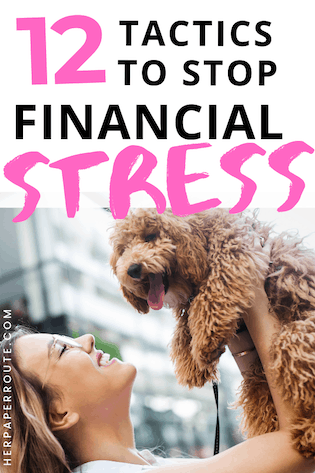
Well, that really depends on your situation. Do you own a house? Have kids? Own a vehicle or two?
Make sure you factor in all these types of things when figuring out how much to save for an emergency fund.
This way, you won’t have to take out a credit card to pay for a busted water pipe or new car engine.
Being prepared ahead of time will reduce the changes of money anxiety and financial problems later on.
6. Know how much money you have and where it comes from
How much is your paycheck normally? Do you have a side hustle? Any investments from your employer that you earn dividends from?
Keep track of all the money you have coming in.
Starting a side hustle is a great way to earn extra income in addition to your full-time income.
Here’s a list of passive income ideas, and a list of work from home jobs you can start.
Make sure you know what you earn, where it comes from and that it is working the hardest it can for you!
If your employer automatically puts your 401K into a diversified portfolio, is that money being utilized for maximum profits?
Find out, if not, change it!
7. Budget, budget, budget!
It’s time to rethink what you know about budgets.
Your budget should be flexible yet consistent. It’s not very common to have the same expenses month to month for an entire year.
If you have kids then you know that the budget in late August is vastly different than in late May. Back to school supplies and fees really add up in the Fall.
Your budget needs to be realistic rather than a rigid, tedious thing that you avoid at all costs.
Make sure you budget in for going out to eat with friends and actually having fun too.
The point of a budget is to take control of your money, not become a hermit. There are plenty of things to do without blowing your paycheck.
Do you want a free financial planner that will help you to achieve your money goals?
Check out my Stress-Free Financial and Budget Planner, below:
8. Know your due dates
Late fees are a pain in the a$$! They are expensive and annoying. But they are also, however, easy to avoid.
It can be as simple as writing all of your expense due dates down on a calendar or setting reminders on your phone but don’t forget to budget for all of your expenses.
Like those essential things you only pay for once or twice a year (hello Amazon Prime membership).
9. Invest in yourself
Ok, so I know this may sound counteractive to what I said before, but hear me out…
This is something that can often be overlooked, especially for us women and mothers who tend to put ourselves last, above all of our other responsibilities.
Make sure you are also rewarding yourself when you reach those hard-fought milestones.
Whether they be financial, health, or relationship related. It doesn’t have to be anything big.
Pay off one of your credit cards. Buy yourself a new book or some chocolate, whatever floats your boat!
You will be highly less likely to stick to a budget or your goals if you are overly strict on yourself and don’t allow for any fun whatsoever.
10. You can afford it? Good! Now, don’t buy it
Now you have worked to pay things off, have reduced financial stress, and have a good amount in your savings in your account. Congrats!
But just because you can afford that new pair of Jimmy Choo’s or the latest iPhone doesn’t mean that you should buy them.
If you start spending just because you can, then you will not be financially free for very long.
Spend out on too many non-necessities and pretty soon you will back at square one, needing another prayer for financial help all over again.
Now I know I just said you should invest in yourself and reward yourself when you reach your goals, but keep things in perspective here.
Keep your bigger ticket items occasional and calculate for those expenses. Stay away from those frequent and impulsive purchases.
Those are probably what got you in money trouble in the first place!
Related: 16 Ways To Relieve Stress
11. Stock up your nuts for retirement
Your retirement should be kept separate from your savings or your emergency fund.
Whether you have a retirement set up through an employer or through an IRA, you should have it set up to contribute regularly and as much as you can afford.
Remember, this is pre-tax savings here people, take advantage of it!
12. Money isn’t everything
This is hard to grasp when you have very little of it, but remember money, ultimately, does not define who you are or how happy you are.
The number in your bank account should not determine how you feel about yourself. You are not your finances.
Tell yourself that you will not have financial stress, because you are in control and making steps every day to improve your spending, saving, and earning.
To start making more money. read these guides:
- How To Start A 6 Figure Blog
- How To Get Rich
- How To Make $100k As A Blogger
- How To Make Passive Income From Home
Are there any financial freedom tips and tricks that you have used?
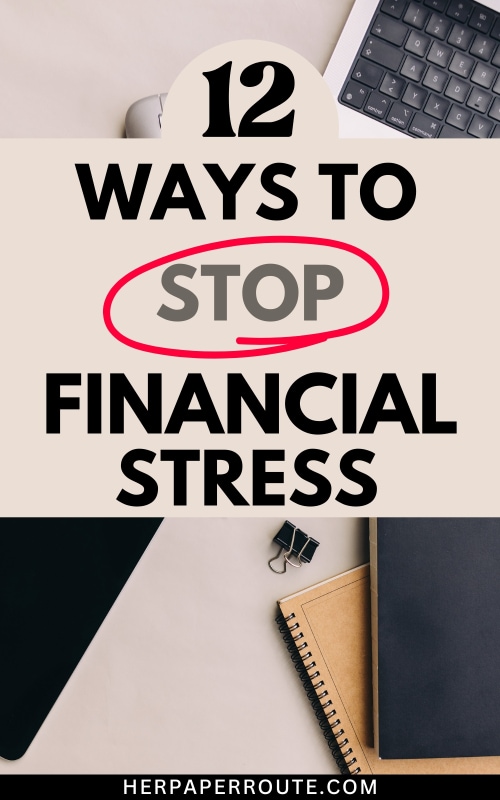
Follow along on Instagram!



